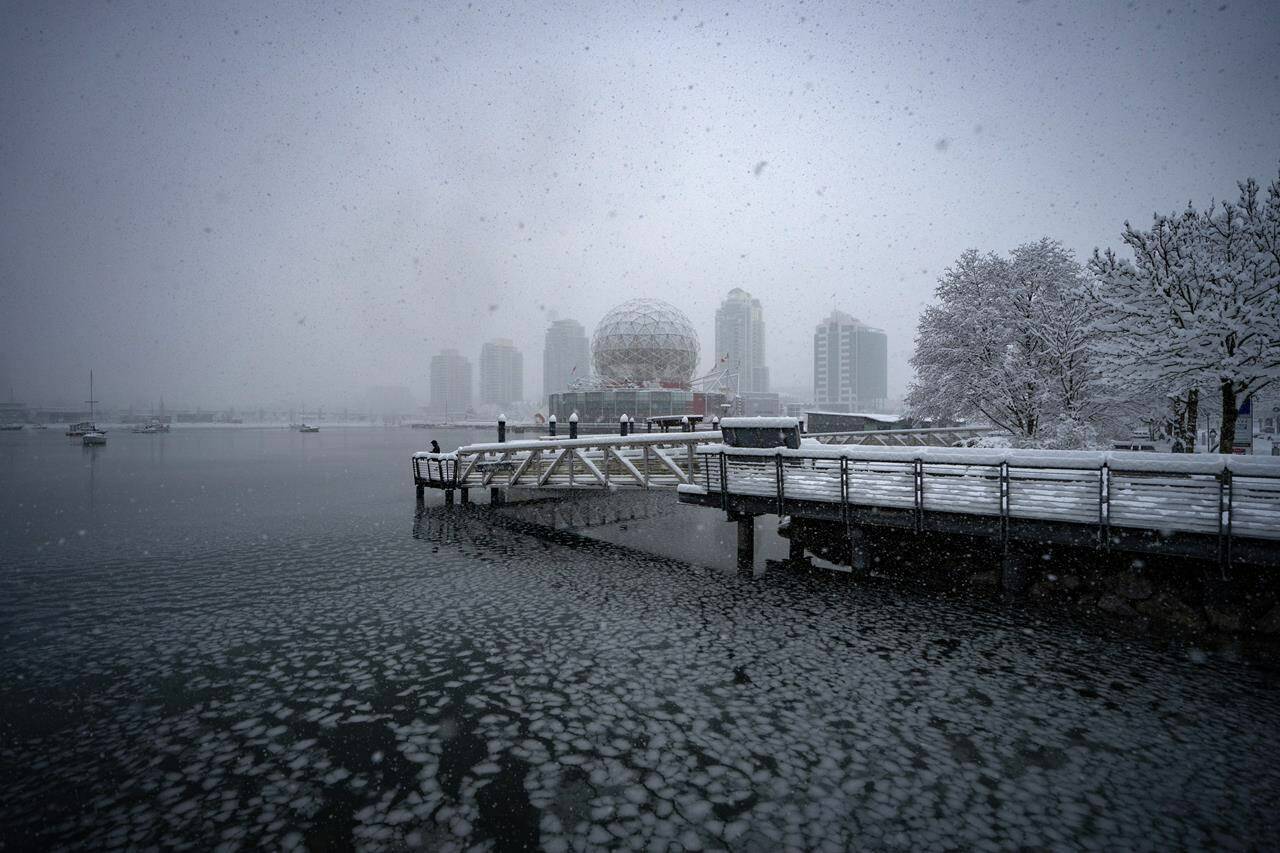British Columbia’s recent cold snap has been life-threatening for people facing homelessness and struggling with addiction and mental health issues, says a spokesman for one of the province’s largest shelters.
The B.C. Coroners Service reported Thursday it is investigating the cause of the outdoor deaths of 36 people during the early days of January when the province was in the grip of a record-breaking cold snap.
Coroners Service data for the days from Jan. 1 to 16 show the highest number of people dying on Jan. 12, a day when numerous low temperature records were broken across B.C.
Grant McKenzie, a spokesman for Our Place Society in Victoria, said people living on the streets, with addiction and mental health issues, are vulnerable to cold weather, with many not conscious of the danger they face.
“A lot of times people just aren’t aware that they are freezing to death, that they’re getting frost bite,” he said. “That’s one of the side effects of both the addiction and mental health crisis. The drugs just take away your awareness of how dangerous your situation is.”
The Coroners Service has yet to determine the cause of the January outdoor deaths, but said five people died on Jan. 12, when temperatures at Puntzi Mountain, west of Williams Lake, neared -50 C, while Victoria broke a 61-year-old record with a temperature of -10.7 C.
But the death rate wasn’t much different from last year, when the service said 34 people died during the same period when the temperature in Metro Vancouver on Jan. 12 was 10 C.
The service said in a statement that it categorizes outdoor deaths as those that occur in public spaces, on streets or sidewalks, in parking lots, parks, trails and campgrounds.
Deaths classified as suicide, homicide or vehicle-related are excluded from the outdoor data, said the coroners service.
McKenzie said he doesn’t have a count of deaths in Victoria since the start of 2024, but has heard reports of people dying.
“I don’t think I’ve seen as much death on the streets as we have in the last month,” he said. “We’re definitely seeing a spike of bad drugs on the street that are taking a lot of lives.”
Late last year, the coroners service reported more than 600 people experiencing homelessness in B.C. died in 2021 and 2022, a sharp increase in the annual average of 183 deaths.
The coroners’ report said it defined a person experiencing homelessness as living outdoors in a makeshift shelter, parked vehicle, vacant home, or any other structure not intended for habitation.
It also included people staying in emergency shelters or temporarily with family, friends or at safe houses or transition homes.
The Coroners Service report said the toxic illicit drug supply significantly contributed to the increase, with more than eight of every 10 deaths in the review classified as accidental.
McKenzie said it’s tragic but people end up taking more drugs during cold weather to seek relief.
“If you are out in a tent or you’re out on the street and it’s cold and miserable and you’re just in survival mode, your chances of maybe doing more drugs than normal would be common because you want to escape,” he said.
A temporary shelter, home or warm indoor space is a first step toward lifting people out of addiction, said McKenzie.
Our Place Society provides more than 1,000 meals daily, 400 units of housing, transitional shelter spaces, hot showers, job skills, health care, education and addiction recovery services.
READ ALSO: Out cold: Spending the coldest night of the year with Courtenay’s homeless
READ ALSO: Southern B.C. snow dump fun for some, a struggle for others

